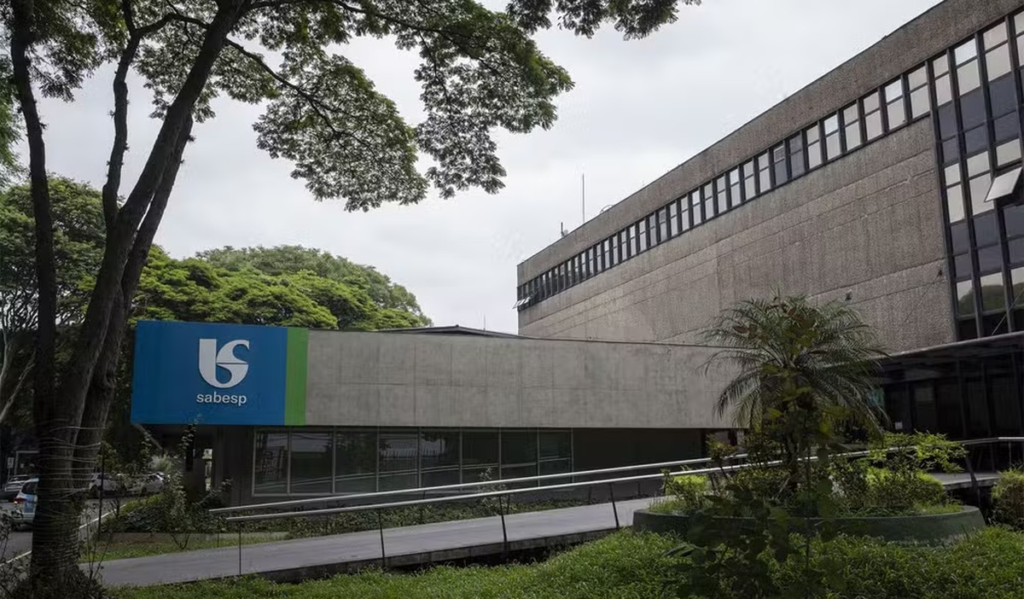Sabesp signed on Saturday (4) the acquisition of control of hydropower generating company EMAE (Empresa Metropolitana de Água e Energia) for R$1.1 billion. The transaction, carried out in two stages, involves the purchase of a majority of common shares previously held by the Phoenix fund and a majority of preferred shares held by Eletrobras.
Sabesp will hold 70% of EMAE if the transaction is approved by the power regulator ANEEL and the antitrust watchdog CADE. The deal, however, is expected to face legal challenges that could unfold in the coming days into a court battle.
The negotiation for EMAE’s control was conducted between Sabesp and a creditor of Phoenix, which held the shares as collateral. When businessman Nelson Tanure—the sole shareholder of Phoenix—acquired EMAE in an auction last year, part of the purchase was financed through R$520 million in debentures issued to the Macadâmia fund, managed by XP and with Vórtx acting as trustee.
The debentures were secured by EMAE shares, as well as shares of Ambipar held by Mr. Tanure and by businessman Tércio Borlenghi—the controlling shareholder of Ambipar, who also took part in EMAE’s privatization and holds 24.19% of its common shares through the Arys fund.
According to information obtained by Valor’s business news website Pipeline, the first interest payment on the debentures was due on September 27, and the R$130 million installment was not paid. XP and Vórtx notified the debtor and declared the entire debt (which was due in 2029) immediately payable last Tuesday (30), initiating the strict foreclosure process on Friday (3).
The debentures of Phoenix Água e Energia S.A. (PHAG11), owned by private equity investment fund FIP Phoenix, account for 26.8% of the Macadâmia fund, recorded at their issuance value of R$520.15 million. The fund’s total assets amount to R$1.9 billion. With the foreclosure of EMAE’s equity, the debenture holders may still move to foreclose on the remaining collateral.
The parties had been discussing the payment terms for months, but the sale to Sabesp came as a surprise to Mr. Tanure. “We will question this by every possible means and try to stop it at all levels,” said a source close to Mr. Tanure. “Nelson has no interest in selling EMAE, let alone losing it over R$130 million.”
Pipeline also found that FIP Phoenix, Mr. Tanure’s investment vehicle in Phoenix Água e Energia, filed three lawsuits on Friday (3) challenging the debt foreclosure—one in Rio de Janeiro’s Court of Justice and two in São Paulo. On Sunday (5), his lawyers were preparing a new emergency petition.
The request sought to suspend the foreclosure process and obtain a mediation period of one to two months to settle the debt. According to sources directly involved in the matter, the latest developments are closely tied to Ambipar’s recent financial crisis.
About four months ago, Mr. Borlenghi reportedly proposed swapping his EMAE shares for the Ambipar shares held by Mr. Tanure. Pipeline found that the two had reached an agreement that also included a cash tranche from Mr. Borlenghi to Mr. Tanure. For the R$250 million difference, Mr. Borlenghi would be responsible for paying interest to XP and having his personal guarantees released.
At the end of August, however, Mr. Borlenghi informed XP that he would no longer proceed with the deal, and the creditor resumed negotiations with Phoenix. Mr. Tanure proposed extending the maturity to March, with a R$15 million fee, allowing the creditor to gradually sell his Ambipar shares to raise funds by early next year and possibly prepay part of the principal.
According to sources close to Phoenix, the negotiations were progressing. However, on September 24, Ambipar obtained a provisional remedy protecting it from creditors, which sent its share price plunging and affected the value of the collateral. Pipeline found that Mr. Tanure holds 150 million Ambipar shares—previously worth around R$2 billion, now valued at R$210 million as of Friday (3).
Given the new scenario, XP opted to mitigate risk by keeping the original due date, citing increased concerns over leverage and governance. Phoenix then sought an additional 30-day extension. “There was no request for a discount, no refusal to pay—only a demand for more time. XP acted in bad faith by negotiating a parallel sale,” a source close to the shareholder said.
The creditor side disputes this version. “The sale to Sabesp may have come as a surprise, but the maturity date had been set a year ago, and payment discussions had been ongoing for six months,” said an executive close to the debenture holders.
Phoenix is also expected to appeal to ANEEL and CADE, which Sabesp has already notified of the deal. The transaction has the support of the São Paulo state government, a shareholder in Sabesp. “The acquisition is a market-based operation and may expand investment in water security,” said the Secretariat for Environment, Infrastructure, and Logistics in a statement.
For Sabesp, the acquisition is strategic. The asset is located in the São Paulo metropolitan area and could enhance supply to the Baixada Santista region. The company envisions integrating the Guarapiranga and Billings systems, which would reduce the need for new infrastructure to bring water from the Paraíba do Sul River, in Rio de Janeiro, over 40 km, and from Sorocaba, 100 km away, in the medium term.
In the auction, Phoenix paid R$70.65 per share—a 33.68% premium over the price set by the São Paulo state government. Sabesp is now paying R$59.33 per common share and R$32.07 per preferred share held by Eletrobras, a premium of nearly 25% over market capitalization.
Sabesp, XP, Mr. Tanure, and Mr. Borlenghi declined to comment.
The original story in Portuguese was first published by Valor’s business news website Pipeline.

